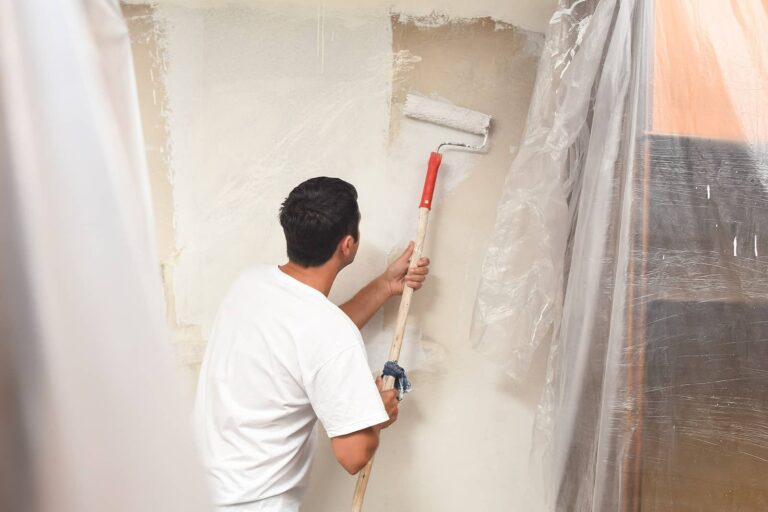
When done well, real estate can be one of the most secure investments available. Buying an investment property is an exciting prospect. Between investors’ personal success stories and home improvement shows highlighting the windfall that can come from flipping distressed properties, it’s no wonder people are hoping to find the next great real estate deal.
Whether you are an experienced investor or this will be your first property, if you’re hoping for the long-term returns that come from investing in a rental property, be sure to avoid these common mistakes:
Guessing at the Math
A potential investment may look enticing at first glance, but without sitting down to fully crunch the numbers, you’re likely to end up with a property that doesn’t provide the profit margins that you were striving for. When it comes to earning income from your investment portfolio, don’t fall into the trap of guessing at the math, or weighing the numbers alongside other properties you may already have.
To truly evaluate the viability of a deal, you should analyze the rental property as if it’s your only source of revenue. Find out the details regarding your profit margins based on a full understanding of your mortgage rates, local rental rates, management fees, and closing costs. While these will immediately impact your finances, don’t forget long-term expenses like taxes, landlord insurance, and regular property maintenance. Knowing all the details will ensure you can accurately calculate vital metrics like your cap rate and cash on cash return.
While it is not as much of a concern while many areas are in a hot rental market, don’t forget to analyze your potential property’s vacancy rate and occupancy rate. This is especially important if the property was previously owned as a rental property since those numbers should be readily available.
Prioritizing a Fixer-Upper

It is best to avoid a fixer-upper when buying an investment property to rent out
There’s no doubt that a fixer-upper can be an enticing purchase for an investor. Buying a fixer-upper can sound great on paper, especially if you are a relatively handy person. They offer the appeal of a lower purchase price and potential savings through completing the renovations yourself. Unfortunately, renovations rarely go as smoothly as you would expect. It’s easy to gloss over the realities of the lead time that a fixer-upper requires before it is rent-ready.
Anyone who has completed a renovation project in the past knows that repairs and remodels always take longer and are more expensive than originally projected. This inevitably means that you miss out on valuable rental income as your property sits vacant during renovations. If you are hoping for long-term rental income through your investment, don’t fall into the trap of reviewing properties like an investor who is seeking to fix and flip. Rent-ready properties are key to ensuring that you start collecting rental income right away.
Related: Real Estate Investing 101: How to Calculate Rental Income
Doing It All Yourself
There are certainly benefits to being a DIY investor and landlord. Self-managing your property can save you a lot of additional fees which allows for larger long-term ROI. After buying an investment property for the first time, many investors start out as DIY landlords, only seeking management assistance as their portfolio grows too large to handle all the day-to-day concerns of multiple tenants.
Related: 8 Steps to Becoming a Landlord
However, don’t let this knowledge prevent you from seeking help. Even the most accomplished DIY landlords likely use a lot of resources at their disposal to find their success. Smart investors seek out the advice of industry experts, tax experts, lawyers, contractors, investor-friendly realtors, and fellow landlords to ensure growth and avoid legal issues. Establishing your own network of reliable industry professionals ensures that you always have a number to call when a problem arises.
Self-management becomes significantly easier with the right tools and expert advice. As you establish your network, be sure that you’re tackling the accounting and business aspects of owning a rental property. Finding the best property management software for your needs is key. A showing scheduler and a listing syndication service can also be helpful to ensure you’re not spending hours performing tasks that could be automated.
Assuming You Know the Local Rent Regulations
Whether this is your first investment property or you’re an experienced investor, you must stay up-to-date on current rent regulations. Rental law changes can be implemented more quickly than you would think. Don’t assume that you still know all there is to know about the laws in your area. If you are branching out and expanding your portfolio in another municipality or state, you will likely be dealing with very different rental regulations.
Related: The Best States for Landlords in 2022
Be sure you check whether there are any rent caps or other laws that will affect your ROI long-term. And look into any community rules, regulations, or covenants for your property. For example, if it’s in an HOA, make sure there are no restrictions in place regarding long or short-term rentals if you wanted to rent out your property via an online listing site like Airbnb or Vrbo.
Adding to Your Portfolio Right Away
As you generate income from your initial investment, it can be tempting to use those funds to immediately purchase another rental property. While you may be excited about the thought of adding to your portfolio, it is generally advisable to use those funds to pay down your debt first before reinvesting. Safe approaches keep your finances protected during an unexpected event or an economic downturn.
You may be in a position to add to your portfolio only if you are positive that your first investment will bring in more profit than the interest rates on yofur current loans. If there is any uncertainty there, err on the side of caution and pay down your debts before taking out additional loans.
Mistakes to Avoid When Buying an Investment Property: Summary
Real estate investing can certainly pay off, but there’s no doubt that buying an investment property is a large financial undertaking that should be carefully considered. Acting as a DIY landlord can also require a lot of financial planning and time investment. However, with a lot of careful planning and little luck, you may find that you have a life-long source of income and a new love for growing your portfolio.
This guest post has been contributed by our friends at Rentec Direct.
